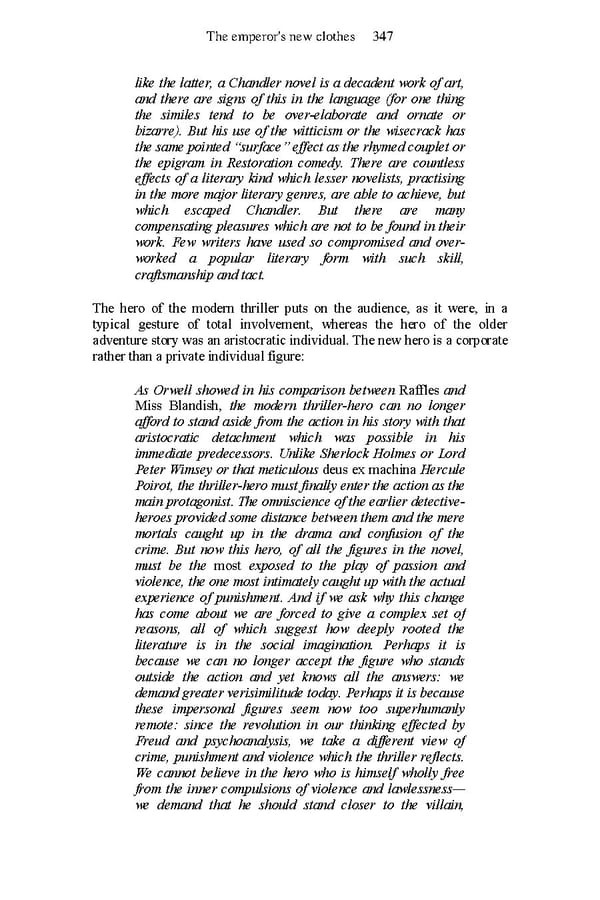The emperor's new clothes 347 like the latter, a Chandler novel is a decadent work of art, and there are signs of this in the language (for one thing the similes tend to be over-elaborate and ornate or bizarre). But his use of the witticism or the wisecrack has the same pointed “surface” effect as the rhymed couplet or the epigram in Restoration comedy. There are countless effects of a literary kind which lesser novelists, practising in the more major literary genres, are able to achieve, but which escaped Chandler. But there are many compensating pleasures which are not to be found in their work. Few writers have used so compromised and over- worked a popular literary form with such skill, craftsmanship and tact. The hero of the modern thriller puts on the audience, as it were, in a typical gesture of total involvement, whereas the hero of the older adventure story was an aristocratic individual. The new hero is a corporate rather than a private individual figure: As Orwell showed in his comparison between Raffles and Miss Blandish, the modern thriller-hero can no longer afford to stand aside from the action in his story with that aristocratic detachment which was possible in his immediate predecessors. Unlike Sherlock Holmes or Lord Peter Wimsey or that meticulous deus ex machina Hercule Poirot, the thriller-hero must finally enter the action as the main protagonist. The omniscience of the earlier detective- heroes provided some distance between them and the mere mortals caught up in the drama and confusion of the crime. But now this hero, of all the figures in the novel, must be the most exposed to the play of passion and violence, the one most intimately caught up with the actual experience of punishment. And if we ask why this change has come about we are forced to give a complex set of reasons, all of which suggest how deeply rooted the literature is in the social imagination. Perhaps it is because we can no longer accept the figure who stands outside the action and yet knows all the answers: we demand greater verisimilitude today. Perhaps it is because these impersonal figures seem now too superhumanly remote: since the revolution in our thinking effected by Freud and psychoanalysis, we take a different view of crime, punishment and violence which the thriller reflects. We cannot believe in the hero who is himself wholly free from the inner compulsions of violence and lawlessness— we demand that he should stand closer to the villain,
 Essential McLuhan Page 353 Page 355
Essential McLuhan Page 353 Page 355